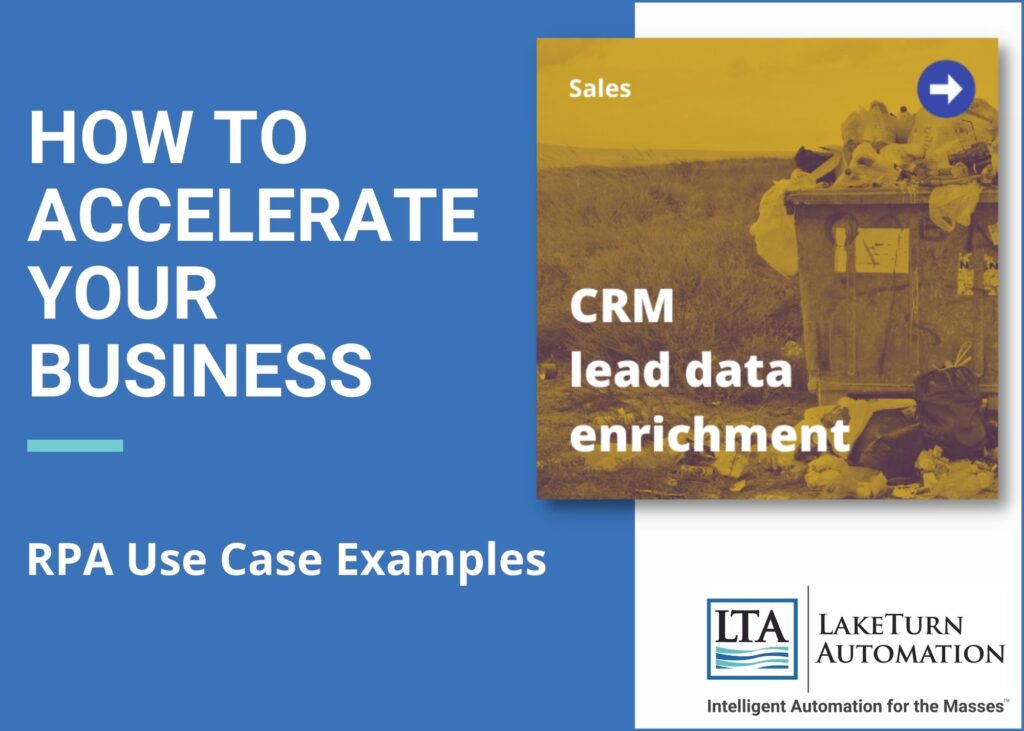According to the Data Quality Index report by Integrate, 40% of generated leads are invalid, incomplete, or duplicated from the start. Moreover, each year 25%-30% of the lead data in your CRM becomes obsolete. RPA is here to help!
More concerning is that sales professionals consume 18% of their time generating and researching these same leads. Utilizing an RPA-enabled workflow to enrich your CRM data frees your sales team from excessive lead research and wasting time chasing unqualified sales prospects.
As lead generation and management processes (and tools) vary by organization, there is no one-size-fits-all solution for lead enrichment. Fortunately, modern RPA automations utilize “no code / low code” technology, allowing for rapid deployment of custom workflows to address client-specific requirements.
A typical custom-built RPA-enabled lead enrichment process would flow as follows:
- A bot extracts current lead information from the CRM system into an Excel worksheet. As a Salesforce example, the bot would sign into the system, run a custom lead listing report and export the report data to Excel.
- For each record in the extracted spreadsheet, a bot utilizes client-specific web-based tools for researching and validating each lead (ex. ZoomInfo, RocketReach, UpLead, D&B, etc.).
- If the bot finds conflicting data (ex., different email addresses, revenue, employee counts, etc.) or potentially duplicate data during research, the necessary information (with website links) is saved to a Data Exception Report to be reviewed by the CRM Data Owner.
- After all data in the Excel database is processed, all rows with newly enriched data will be updated back into the CRM system (with change log information).
- Depending on client CRM capabilities, this lead update process is accomplished either by a bot running a native CRM import function or by a bot logging into the CRM system and updating each record using the CRM’s lead edit screen(s).
- After the enrichment process is complete, the bot sends an email to the CRM Data Owner that contains a Change Summary Report and the Data Exception Report outlined above.
As you can see, leveraging RPA to assist in performing lead data enrichment and validation can save many mundane hours each week. More importantly, this automated process helps ensure quality lead data in your CRM, enabling your sales team to pursue qualified leads instead of chasing company information, phone numbers, and email addresses.
Contact us today to learn more about leveraging RPA to transform your CRM from the land of misfit data to a high-quality lead repository that drives increased sales conversion rates.
